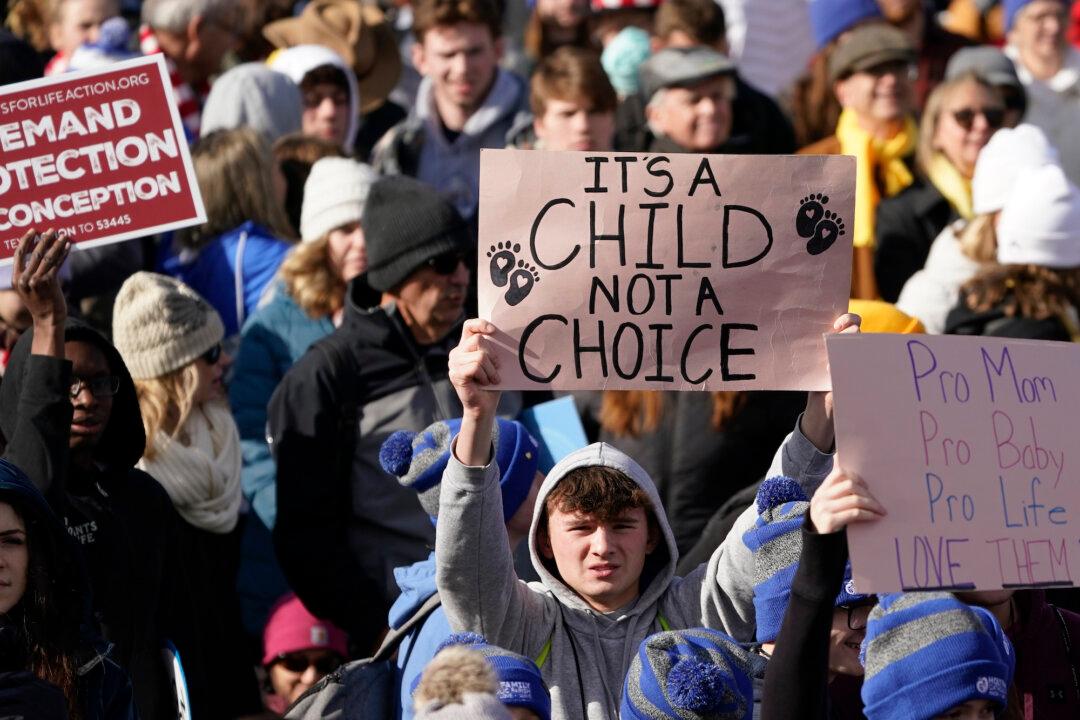Tens of thousands of people gathered in Washington on Jan. 20 to demonstrate their opposition to abortion in the first March for Life annual event since the U.S. Supreme Court overturned Roe v. Wade and delivered a long-sought victory to the pro-life movement.
Participants spread across a section of the National Mall to hear speeches and later took part in a march, holding signs with phrases such as “It’s a Child, Not a Choice,” “I Demand Protection at Conception,” and “I Am The Post-Roe Generation.”





